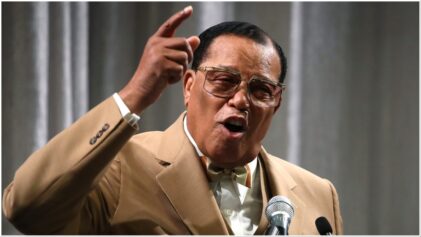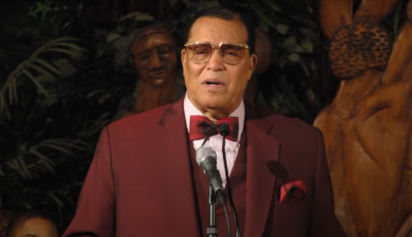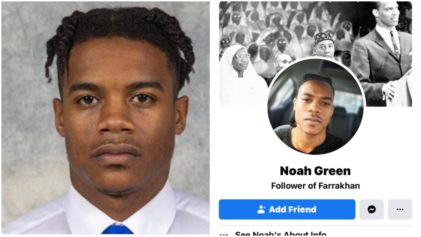The ubiquitous social media giant Facebook has taken steps to purge what they regard as “dangerous” high-profile individuals from their platforms. While the figures banned from Facebook include white supremacists, right-wing extremists and anti-Semites, the tech company also banned Nation of Islam leader Minister Louis Farrakhan for statements he has made regarding the Jewish community. Removing Min. Farrakhan has prompted voices in the Black community to accuse Facebook of establishing a false equivalency between white supremacy and the rage of those Black people who fight against white supremacy.
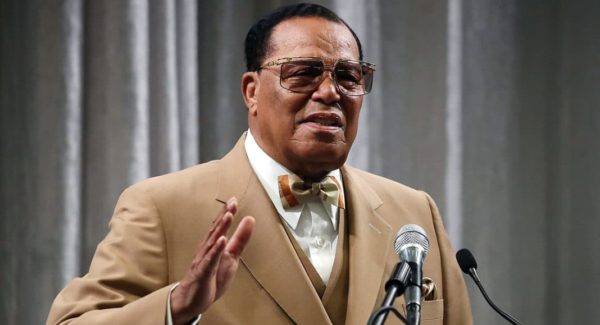
Among those targeted by Facebook in addition to Farrakhan are right-wing conspiracy theorist Alex Jones, white nationalist media figures Milo Yiannopoulos, Laura Loomer and Paul Joseph Watson, and anti-Semitic congressional candidate Paul Nehlen. “We’ve always banned individuals or organizations that promote or engage in violence and hate, regardless of ideology,” Facebook said in a statement, arguing the platform bans “dangerous individuals and organizations” that employ violence or through their ideology attack people based on race, religion, ethnicity or sexuality. “The process for evaluating potential violators is extensive and it is what led us to our decision to remove these accounts today.”
Facebook, which also owns Instagram, has faced criticism for including Farrakhan among their list of dangerous and violent right-wing hatemongers. Among his statements that are at issue, Farrakhan reportedly called Judaism a “gutter religion;” referred to “that Satanic Jew” and “Jews’ grip on the media” and said “the powerful Jews are my enemy,” and tweeted, “I’m not an anti-Semite. I’m anti-Termite.” The decision to ban the Nation of Islam leader would seem to provide Facebook cover from accusations that the platform singled out far-right personalities.
Snoop Dogg took to Facebook and to Instagram to express his disapproval. “Facebook and Instagram just banned the Minister Louis Farrakhan. I want to know for what,” Snoop said. “All he ever do was tell the truth. What if we ban y’all? What if we start f–ing with y’all, Facebook and Instagram?
“I stand with him. Ban me motherf–er! Ban me! Because I’m gonna keep posting this s–t … F–k y’all who got a problem with him.”
Earlier this year, Women’s March organizer Tamika Mallory refused to condemn Min. Farrakhan and defended her attendance at the annual NOI’s Saviour’s Day event. “I didn’t expect my presence at Saviour’s Day to lead anyone to question my beliefs, especially considering that I have been going to this event regularly for over 30 years,” she said. “I first went with my parents when I was just a little girl, and would begin attending on my own after my son’s father was murdered nearly 17 years ago. In that most difficult period of my life, it was the women of the Nation of Islam who supported me and I have always held them close to my heart for that reason.”
The Nation of Islam and Min. Farrakhan are known for the historic 1995 Million Man March, which was the largest gathering of Black men in the nation, and for social and educational programs in the community, such as a prison reform ministry, services for the formerly incarcerated, and private security companies that respect the Black community and keep it safe. The Nation of Islam is engaged with the hip-hop community, and Farrakhan spoke at Nipsey Hussle’s funeral. Black leadership such as the Congressional Black Caucus and President Obama have been called upon to repudiate Farrakhan, which the first Black president did when he was a candidate for the nation’s highest office.

Temple professor and media commentator Marc Lamont Hill, who was removed as a CNN contributor for making statements in solidarity with the Palestinian people, came under fire for having ties to Farrakhan. “I ain’t got the luxury of throwing people who love us away,” Hill said, rejecting “this weird litmus test” that he claims is only applied to Farrakhan, and the notion that Black figures must repudiate the minister to maintain power and influence.
“For some reason, if you meet with Minister Farrakhan and you don’t throw him away wholesale, then you’re castigated in a way that doesn’t happen with anybody else,” Hill said. “I worked on Fox News for many years. No one ever said, ‘Why are you meeting? Why are you sitting with Bill O’Reilly? Why are you sitting with Sean Hannity? Why are you sitting with Ann Coulter?’ No one ever said that.” The Temple professor asked why Black leaders must “ritually denounce Farrakhan in order to sustain a position,” adding that Min. Farrakhan is his brother, and the two do not agree on some issues.
The focus in white-dominated conservative media on Black leaders such as Min. Farrakhan — regarded by some as a perennial boogeyman — and the scapegoating of Rep. Ilhan Omar comes amid a problem of white supremacist terrorism and domestic terror attacks on Black churches, mosques and synagogues. Singling out Black voices such as Min. Farrakhan for statements he makes in the fight against white supremacy may allow society to lose sight of the problem of white supremacy.
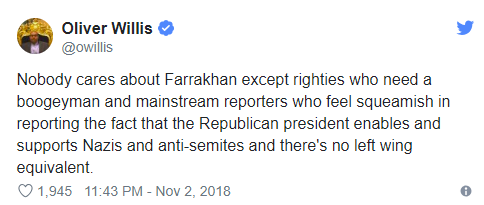

Nylah Burton, who is a Black Jew and has spoken out against Farrakhan’s statements, nevertheless wrote in the Forward that white Jews must stop weaponizing Farrakhan against Black Jews. Burton noted the “insane rage” that white Jews have when discussing Farrakhan, and the implied anti-blackness, while little attention is paid, she argues, to white racist politicians who control the three branches of government and unlike Farrakhan, have the power to oppress white Jews.
“Meanwhile, anti-Semitic American politicians who actually have power, like Iowa congressman Steve King, receive a negligible amount of coverage in comparison,” Burton wrote. “White racists literally control all three branches of government at the moment, but black people still bear a large brunt of the blame for modern anti-Semitism.
“And while nothing justifies anti-Semitism, you simply cannot separate conversations about black anti-Semitism from the fact that many black people have directly experienced oppression from white Jewish people. You can express anger and disappointment at the bigotry of Hebrew Israelites, but you have to acknowledge that many people are drawn to that movement after being denied the opportunity to convert in white Jewish congregations.”
Burton said that while white anti-Semites hate Jews and want power, Black anti-Semites are “are motivated by anger over gentrification, police brutality, and slavery.” Burton’s words echo the nuance of James Baldwin, who wrote: “In the American context, the most ironical thing about Negro anti-Semitism is that the Negro is really condemning the Jew for having become an American white man.” Rabbi Capers Funnye — who leads Chicago’s Beth Shalom B’nai Zaken, one of the nation’s oldest Black synagogues, and is the cousin of Michelle Obama—has had interfaith dialogue with Farrakhan, was upset that the minister called Judaism a “gutter religion,” and considers him a friend. “I don’t agree with everything the man says or thinks,” Funnye told the New York Times in 2009. “I’m a Jew, after all. But you need to talk.”
Meanwhile, the suspension of Min. Farrakhan’s Facebook account — which had over 1.1 million followers and 996,000 likes — comes as Facebook makes decisions regarding racism and Black people, apparently in the absence of Black people, who are among their most voracious users. Facebook is suspending the accounts of Black people for talking about racism and talking about white people or sharing information about racist incidents. Further, the company has faced internal criticism over its treatment of Black users and employees — a “Black people problem” in a company whose Black staff are a mere 4 percent of the total. And Twitter refuses to wholesale ban white nationalists because doing so would mean suspending the accounts of some Republican politicians.
